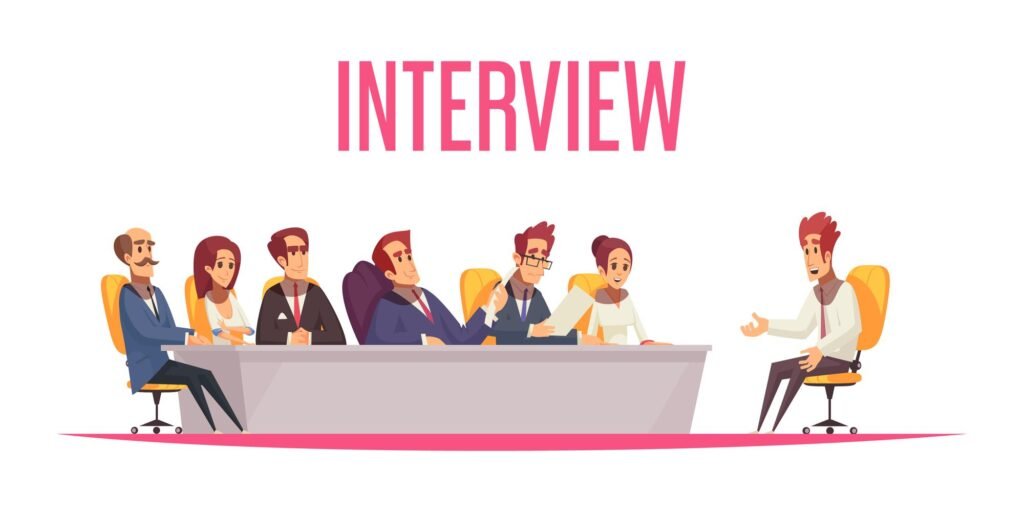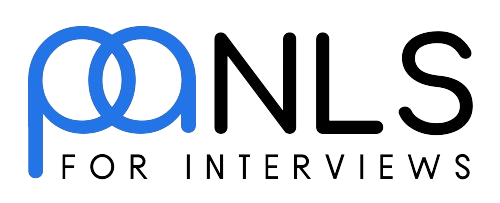Mastering the Panel Interview: Dos, Don’ts, and Everything In Between

A panel interview can feel like stepping into a boardroom where all eyes are on you—and for good reason. In today’s hiring landscape, panel interviews are increasingly used to make collaborative, efficient, and well-rounded hiring decisions. If you’re preparing for one, this comprehensive guide will help you stand out with confidence.
Whether you’re a job seeker facing multiple interviewers or an HR leader designing your company’s recruitment process, understanding the panel interview structure is essential. In this post, you’ll learn what a panel interview entails, how to prepare effectively, what mistakes to avoid, and the key dos and don’ts for interview panel success. We’ll also examine panel interview pros and cons and share insights from real-world hiring experiences.
What is a Panel Interview?
A panel interview is a structured type of job interview format where multiple interviewers assess a candidate at the same time. Unlike a one-on-one interview, where you’re only engaging with one decision-maker, panel interviews involve two or more people—often from different departments.
The panel typically includes a hiring manager, an HR representative, a technical recruiter, and sometimes a future team member or stakeholder. Each person on the panel evaluates different attributes—such as your communication skills, technical knowledge, leadership potential, and cultural fit.
The goal is to make the process more holistic. A panel interview is designed to assess your ability to interact with a team, handle pressure, and communicate clearly across disciplines.
Panel interviews are common in mid- to senior-level roles, cross-functional positions, and industries like tech, healthcare, education, and government.
Why Do Companies Prefer Panel Interviews?
Employers prefer panel interviews because they streamline decision-making and foster collaboration during the evaluation process. This format brings together multiple perspectives, which can reduce bias and lead to better hiring outcomes.
Here are the main panel interview pros and cons:
Pros:
- Faster decision-making since all decision-makers hear your answers at once.
- Broader evaluation of a candidate’s skill set from various professional lenses.
- Minimizes unconscious bias by involving multiple perspectives.
- Allows interviewers to observe how a candidate handles pressure and multitasking.
Cons:
- Can be intimidating or overwhelming for the candidate.
- Makes it harder to build personal rapport with individual interviewers.
- Scheduling multiple people at once can be logistically complex.
- Risk of overlapping questions or unclear focus areas from panelists.
Understanding these panel interview pros and cons helps both candidates and interviewers approach the process with better awareness and strategy.
How to Prepare for a Panel Interview
Success in a panel interview comes down to preparation. Unlike traditional interviews, you must be ready to engage with several professionals at once, each with their own priorities and expectations.
Here are steps to help you prepare:
- Research each panelist if you know their names. Check their LinkedIn profiles or company bios to understand their roles and perspectives. Knowing their functions will help you tailor your responses.
- Prepare STAR-based answers. Use the STAR method (Situation, Task, Action, Result) to build structured, impactful responses that show both competency and clarity.
- Practice answering questions in a group setting. Ask a friend or mentor to simulate a panel interview, so you can get used to shifting eye contact and managing multiple people’s body language.
- Develop versatile stories. Be ready with examples that can appeal to HR, technical leads, and cross-functional stakeholders.
- Bring multiple printed resumes. This is especially important in in-person interviews—panelists may refer to your resume during questioning.
- Plan your questions in advance. Have 2–3 thoughtful questions to ask the panel at the end, showing your interest in the role and the team.
Panel interviews reward those who prepare with intention and understand the dynamics of speaking to a group.
Dos and Don’ts for Interview Panel
Understanding the dos and don’ts for interview panel situations is crucial for navigating this unique format successfully. These simple behaviors can make the difference between leaving a positive or forgettable impression.
Top Dos:
- Make consistent eye contact with each panelist throughout the interview.
- Refer to everyone equally when answering, even if only one person asked the question.
- Pause briefly before answering to gather your thoughts and stay composed.
- Show appreciation to the panel at the beginning and end of the interview.
- Use inclusive language that addresses the panel as a team.
Top Don’ts:
- Don’t direct all your answers to a single panelist, ignoring the rest.
- Don’t interrupt or speak over a panel member—even if you’re eager to clarify.
- Don’t arrive unprepared or overly rehearsed; keep responses genuine and flexible.
- Don’t forget to show curiosity by asking thoughtful follow-up questions.
- Don’t panic if you don’t know the answer—explain your thought process.
These dos and don’ts for interview panel setups apply across industries and are fundamental to building trust with a diverse group of evaluators.
Common Mistakes to Avoid
Many candidates unknowingly make avoidable errors during a panel interview. These mistakes can hinder your chances even if your skills are otherwise a strong fit.
Here are the most frequent ones:
- Focusing too much on one panelist — It’s natural to direct answers toward the person you feel most comfortable with, but this excludes the others and weakens rapport.
- Using overly technical language — Unless your entire panel is technical, avoid deep jargon. Aim for clarity that everyone can understand.
- Failing to ask your own questions — Ending the interview without asking anything can seem disinterested. Have a few questions ready that reflect your research and curiosity.
- Not reading nonverbal cues — Ignoring facial expressions or body language can make you seem disengaged.
- Appearing over-rehearsed — While preparation is good, sounding scripted can reduce your authenticity and make answers feel impersonal.
By being mindful of these mistakes, you’ll present yourself as a well-prepared, adaptable professional in any panel interview.
How to Stand Out in a Panel Interview
To truly stand out in a panel interview, you need more than polished answers—you need presence, strategy, and interpersonal skill.
Here’s how to make a memorable impact:
- Read the room and adjust your communication style depending on who’s asking the question. For example, use data-driven language with technical leads and people-focused language with HR.
- Show collaboration skills. Use past examples that highlight how you work with cross-functional teams.
- Personalize your follow-up. Send thank-you emails to each panelist, referencing specific questions they asked or comments they made.
- Demonstrate flexibility. Show that you can pivot between subjects and interact confidently with a diverse group.
- Stay grounded. Nervous energy is natural, but composure under pressure is impressive. Take a breath, slow down, and speak clearly.
Remember, the goal of a panel interview is to assess how well you’ll fit into a team—so showing that you can collaborate and communicate effectively is key.
Real-Life Panel Interview Success Stories
One candidate applying for a software development manager role faced a four-person panel interview with team leads, a senior engineer, and an HR manager. Instead of being overwhelmed, he researched each panelist and prepared relevant examples aligned with their interests.
He used the STAR method, maintained good eye contact with all interviewers, and even asked the engineer about a recent product release mentioned on the company blog. The HR manager later shared that his adaptability and research set him apart.
Another candidate for a sales leadership role used humor and storytelling to connect with the panel while keeping her answers concise and impactful. She received a job offer the same week.
These real-life examples show how applying the dos and don’ts for interview panel settings can lead to tangible success.
Expert Tips from Hiring Managers
We spoke with several hiring professionals to understand what truly matters in a panel interview:
- “We want to see if the candidate can communicate with all levels of the company.”
- “Great candidates treat the interview like a conversation, not an interrogation.”
- “When someone can engage multiple people at once, it reflects real workplace dynamics.”
Today, even remote interviews are often conducted in panel format. Video panel interviews require just as much eye contact, energy, and preparation—just translated to screen.
Final Thoughts
While panel interviews can be intense, they offer an excellent opportunity to showcase your communication skills, professionalism, and ability to work across departments.
Candidates who thrive in collaborative environments and can think on their feet tend to do well in this setting. If you’re uncomfortable with large audiences, don’t worry—preparation and practice go a long way.
Regardless of your personality type, understanding the panel interview pros and cons and using the right strategies will give you a significant edge.
Simplify Panel Interviews with Panls.ai
Looking to ace your next panel interview or streamline your company’s hiring process?
Panls.ai offers a smarter way to manage interviews. It provides Interview as a Service (IAAS), helping companies:
- Match job roles with qualified, experienced interviewers
- Run scalable, on-demand panel interviews
- Eliminate hiring bottlenecks while ensuring evaluation consistency
Whether you’re hiring a backend developer, running technical assessments, exploring sources of recruitment, or diving into lateral hiring, Panls.ai is your go-to platform.
Frequently Asked Questions
A panel interview involves multiple interviewers assessing a candidate simultaneously, offering a more comprehensive evaluation than one-on-one interviews.
Research panelists, prepare structured answers using the STAR method, practice speaking to multiple people, and have thoughtful questions ready.
Pros include faster decisions and reduced bias. Cons include potential stress and less personal connection with interviewers.
Do maintain eye contact and speak to everyone. Don’t ignore panelists or over-rehearse.
Breathe deeply, focus on your preparation, and remind yourself that the panel wants you to succeed.
Yes. Send personalized thank-you emails to each panelist, reflecting on specific questions or discussions.
Yes, but the core strategies apply. Make sure your tech setup is solid, and maintain virtual eye contact and energy.
Tech companies, government agencies, academic institutions, and large enterprises often use panel interviews for mid-to-senior level roles.
